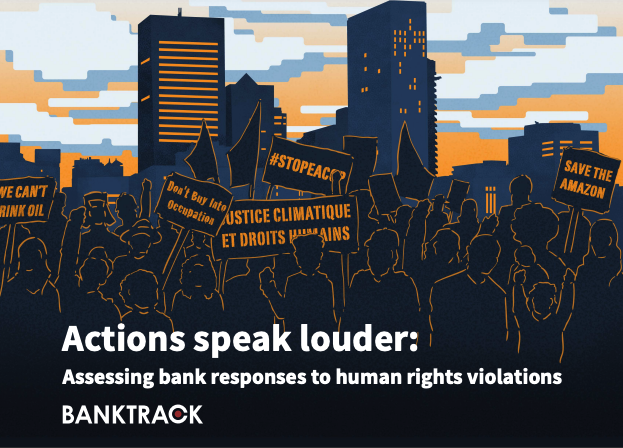The UN’s new “Roadmap for the Next Decade” of Busi- ness and Human Rights, published in November 2021, begins by setting out the need to raise the ambition and increase the pace of implementing respect for human rights. The roadmap highlights the role of the financial sector to speed and scale up business respect for human rights and addresses the importance of engaging with stakeholders in the process.
More still needs to be done to achieve this in the banking sector, where ten years on from the endorsement of the UN Guiding Principles in 2011, much energy has been spent on developing policies, procedures, discussion papers, and in some cases human rights reporting, but there are vanishingly few examples of banks actually helping ensure remedy for rights holders after human rights violations have occurred in projects financed by banks.
This report assesses banks on their responses to specific allegations of human rights violations linked to their finance, raised by civil society or community organisa- tions, to focus attention on the need for banks to actively engage and more frequently deliver remedy in these circumstances. In the report, we highlight nine cases in which severe human rights impacts are felt by local com-munities and affected people. The findings show how, in most instances, banks fail to take appropriate action to address the impacts, thus leaving affected communities without remedy.

